Veggie Mijas’ Amy Quichiz on Plant-Based Comida Latina
- March 2021
- By Kim Caviness
- Recipe from Colombia
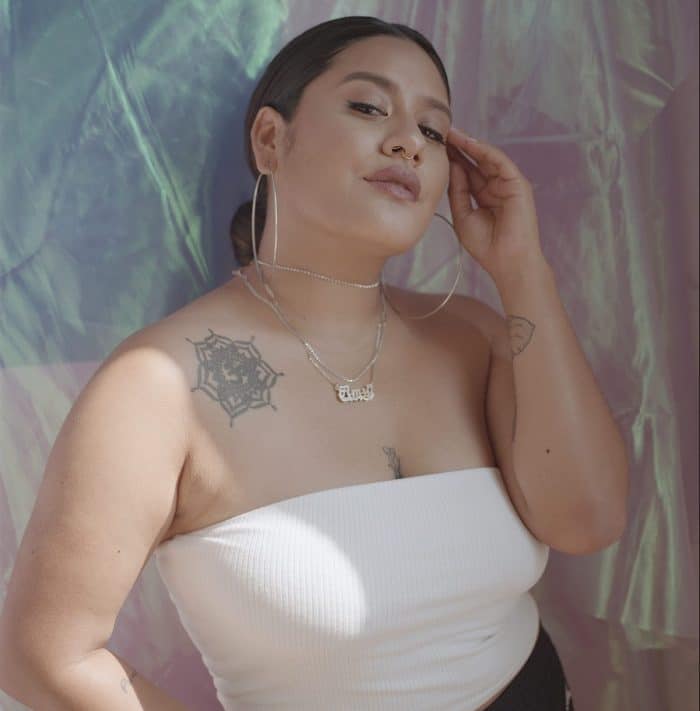
Amy Quichiz, 26, is half Peruvian, half Colombian, from Queens, N.Y.—and hungry. Hungry for food justice, social change and a future where the collective she founded, Veggie Mijas, can feed the bellies and souls of the marginalized.
But back in college at Syracuse, the day she posted on Instagram asking for easy vegetarian recipes to cook in her student kitchen, she was just hungry. Recipes were shared by friends and then by friends of friends— mostly women, mostly Latinx and POC, like herself—and a powerful community emerged. One thing led to another and Amy found herself founder and CEO of Veggie Mijas, a collective built around plant-based eating and pursuit of food justice by women and gender non-conforming vegans of color in the U.S. Or, as its website puts it: Veggie Mijas are activistas de la tierra.
Next up: the world. Veggie Mijas currently has 11 chapters in cities like Chicago, Washington, D.C. and Los Angeles. Global expansion is in the works. We called Amy to ask her about what it’s like being a vegan Latina and how she thinks about food, identity and family. Plus, the thing that got her started on this journey: recipes. What are her favorite Latino dishes to veganize?
Q: How do you, your mom and your grandmother connect around your food heritage and meal making now that you are vegan?
A: I actually come from a line of a broken generation of women that don’t know how to cook. And that reflects on me, as well. My grandma, she knew how to cook, sometimes. But as she got older, she just like stopped cooking. And then when she came to the U.S. from Colombia, my mom also didn’t know how to cook. … Growing up I didn’t spend time in the kitchen.
I’m not canceling that cycle, because I don’t know how to cook.
But, also, I am stopping that cycle in the sense that I am eating healthier. I am getting knowledge of what food means to me. I’m creating these communities. So in a way, like, I hope to create generations where they love to know how to cook and connect their food to their identity.
Q: Is there a Colombian or Peruvian dish that was very important for you to figure out how to make in a vegan way?
A: One is empanadas, which is not dish but it’s like an appetizer. My girlfriend veganized it so perfectly with vegan cheese and guava. I think that one was like the first one where I was like, dang, I really needed that. And I would also say papas a la humacaina, which is Peruvian, but I still haven’t mastered it in vegan. Yet.
Q: When did you realize that you had started a food movement and not just a website to collect vegan recipes?
A: I think it was definitely the first potluck that we ever had for Veggie Mijas. I made this little flyer on my phone. I said “Everybody, let’s meet up. Whoever’s in New York City.” And a friend who I didn’t even know in person was like, “Oh, I can host the first potluck.” And when we got there, in the Bronx, her house, there were 40 people there. Everyone was saying “I love this Veggie Mijas”—they didn’t know I was the founder and right there.
And then after people saw it on Instagram, the photos of us meeting up in New York City, people from all over different cities, were like, “We want to have this, too. How can I create a Vegggie Mijas here?” That’s what started the idea of opening up chapters.
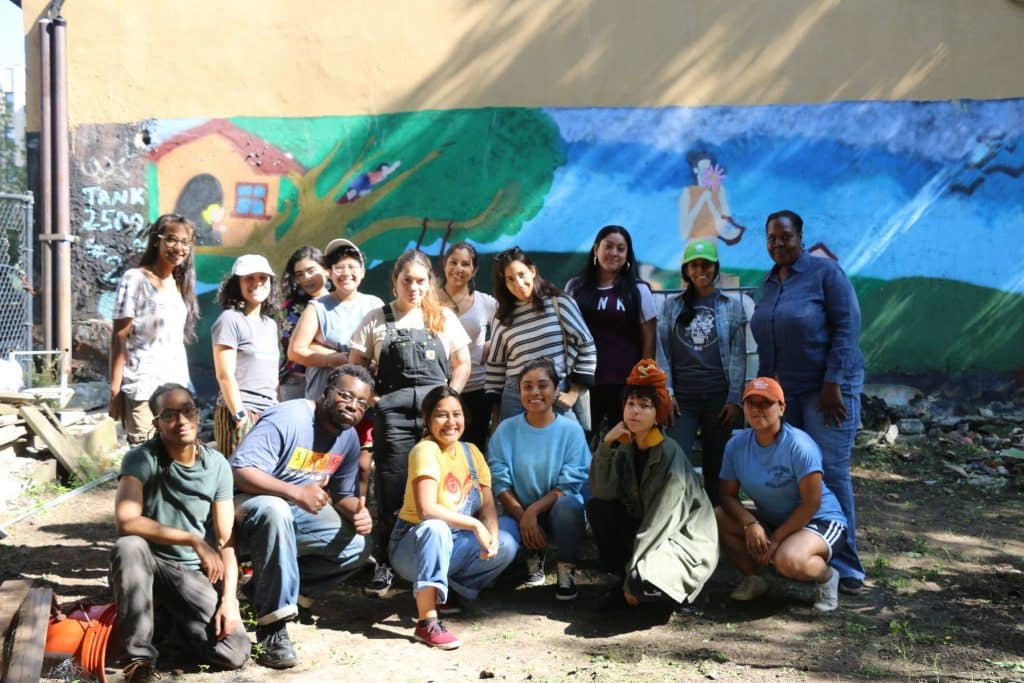
Q: And now you have 11 chapters in the U.S. What about Veggie Mijas do you think connects so deeply? Is it this magical combination of food and identity coming together in this new way?
A: Yes. And that fact that people just didn’t have the spaces where they can be their whole selves, being a person of color, being from any other marginalized identity, being plant-based or wanting to be plant-based.
Q: What would you say to Latinxers considering veganism but not wanting to upset their family food heritage? How do they uniquely explore plant-based eating in a way that is respectful of the culinary traditions in our culture?
A; I would say the first thing would be to, first of all: question tradition. What does tradition mean to me, to us? Because before colonialism, a lot of that really wasn’t part of our culture. At least for my culture. So, it’s just like questioning what tradition means before colonization. How does that play into a plant-based lifestyle? How can food be more relatable to your identity? Questioning the foods around you, questioning where food comes from. Asking your family what they used to eat before they came to the U.S , if you’re first generation, like me. I questioned a lot of what my parents used to eat. Just finding ways of how to bridge your culture with food.
Q: Do you think honoring food traditions is more pronounced for Latino people than other from backgrounds you’ve come across in Veggie Mijas?
A: That’s really hard to group just Latinos. But I think for me, being Latina, and connecting to my food is so beautiful. People all over Latin America connect themselves with food. I think that being from the U.S., it’s so hard to have that same connection. Because of capitalism, and fast foods, and all the things that they’re putting in our products.
For me, connecting to my roots, asking questions, and hopefully, when I go to Colombia, soon after the pandemic, I can ask more questions about my family and their food. I think I think there’s just so much more that we need to know. The doors are continuously opening, to explore more of how we connect our food and our identity. It’s never ending.
Q: Looking 10 years from now, where would you love Veggie Mijas to be? How big do you want it to get,and what do you want it and you to grow into?
A: 10 years? Wow. I would be 36. I would definitely want Veggie Mijas to be global. At that point, I think having a global movement for food justice, climate justice, like: raising funds for farmworkers: for workers who get out of farm factories and now don’t have a job.
I want to be doing global campaigns, doing a lot of local community work. Still having a bomb education program, where we’re training educators, training organizers all over the city. Where Veggie Mijas has curriculums: I want it to be physical spaces where people can have events and get together to brainstorm and get to know each other.
I definitely see it as local and global as it can get.
Ready to Cook Vegan Latina Comida?
To try your hand at vegan comida Latina, consider these delish-looking empanadas from Veggie Mijas’ CocinandoCon recipe blog, in a recipe shared by Sandra Salazar of Los Angeles, followed by Amy’s vegan quesadillas, below.
Empanadas Con Ají by Sandra Salazar
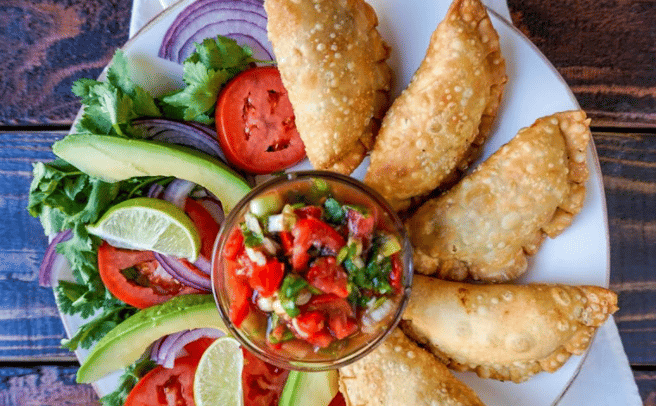
Amy and Johanna’s Vegan Quesadillas, Sweet Potato Fries & Guac
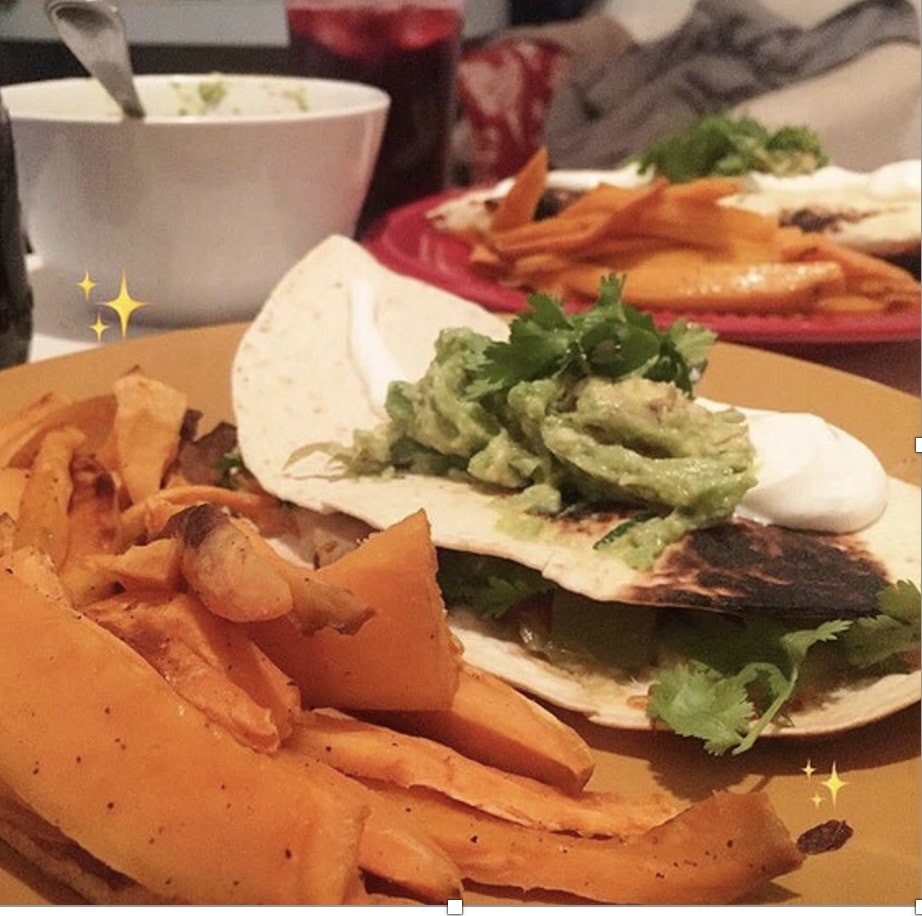
Amy and her partner, Johanna Toruño, posted these vegan quesadillas and sweet potato fries on the Veggie Mijas #CocinandoCon blog. Johanna is an artist and the creator of the Unapologetic Street Series. Here is their dish.
Vegan Quesadillas: Amy and Johanna use mushrooms, green peppers, red peppers, tomatoes, queso blanco or veg cheese if ya wants), garlic & tortillas, of course.
Sweet Potato Fries: Cut up sweet potatoes & add black pepper & salt, cinnamon sugar, and olive oil (& honey if you want as well). Put them in the oven on 400° and keep them in for 40-ish minutes.
Guac: 2 avocados, jalapeño, tomatoes, cilantro, salt (and you can add onions)—smash it all up and bammmmm, you got your guac!
Portrait of Amy by Bridget Badore
MoreLike This

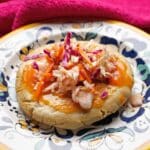
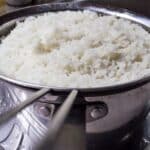
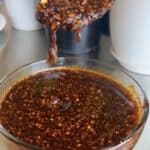
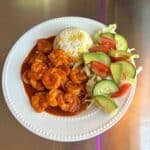
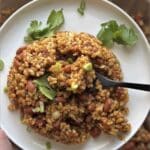
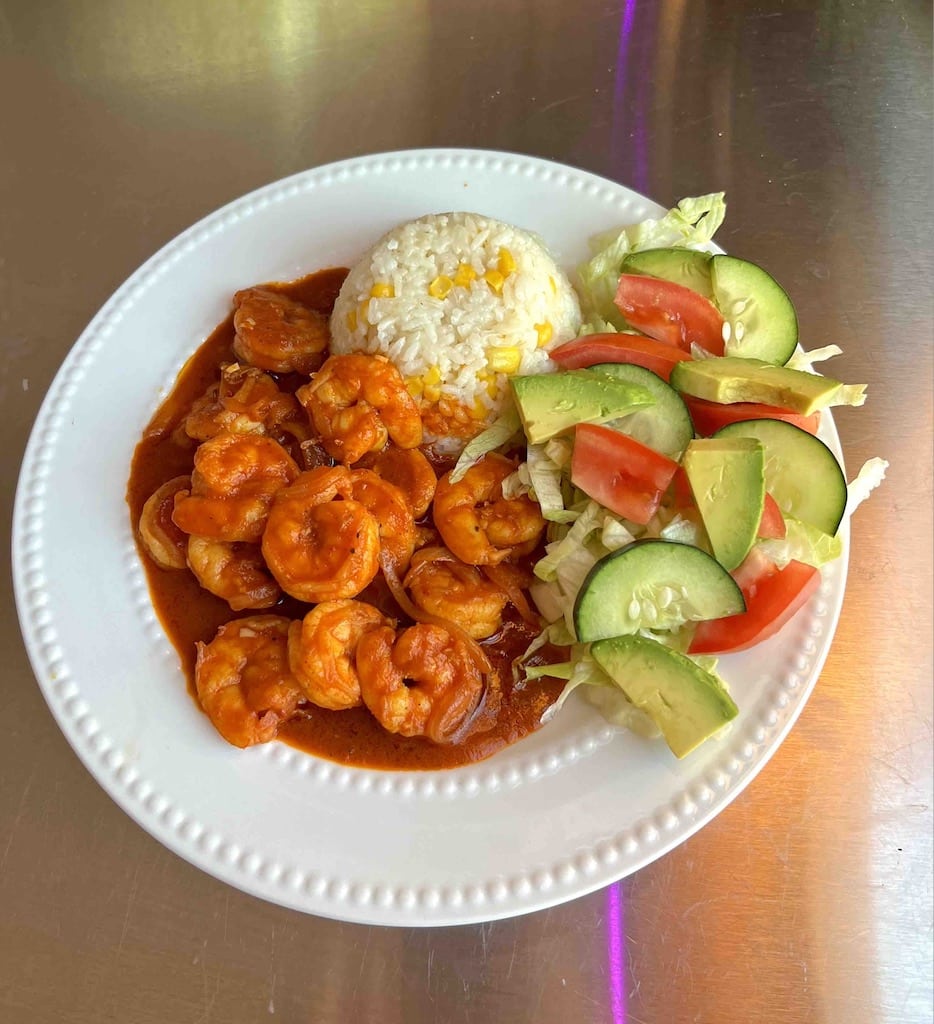
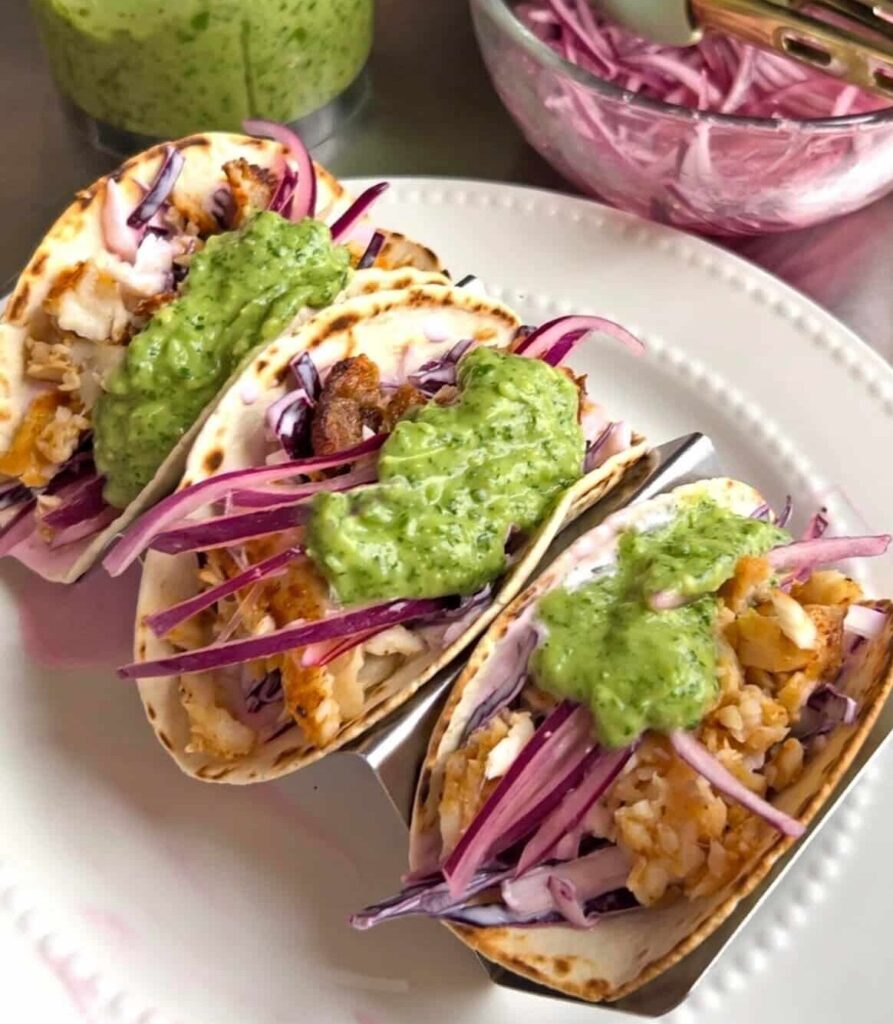
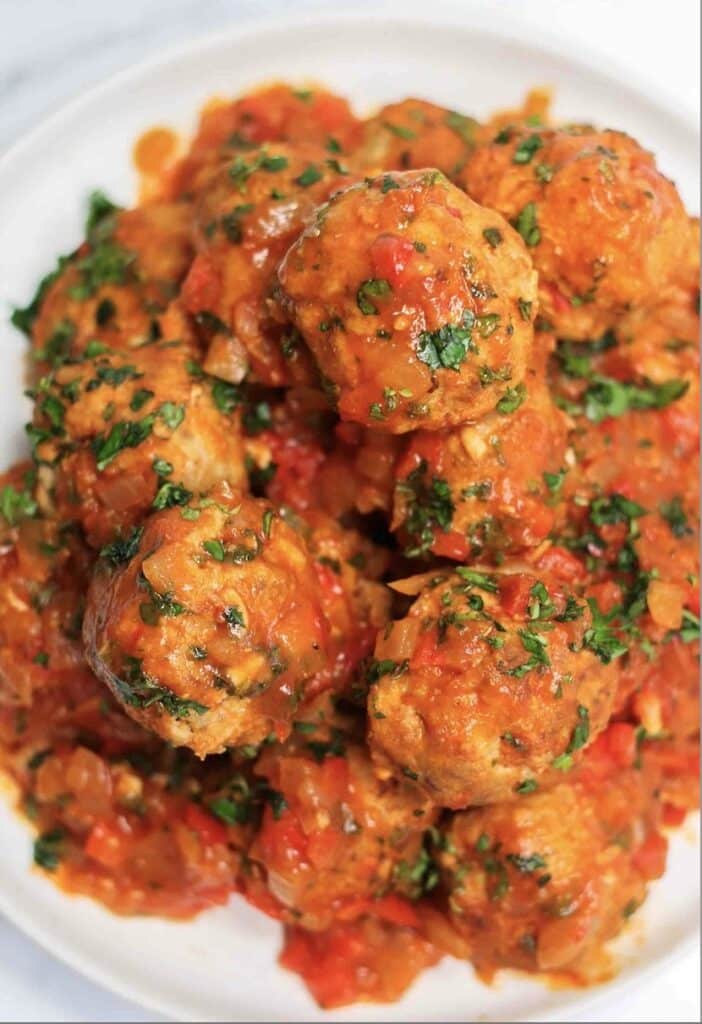
Got a question or suggestion?
Please rate this recipe and leave any tips, substitutions, or Qs you have!